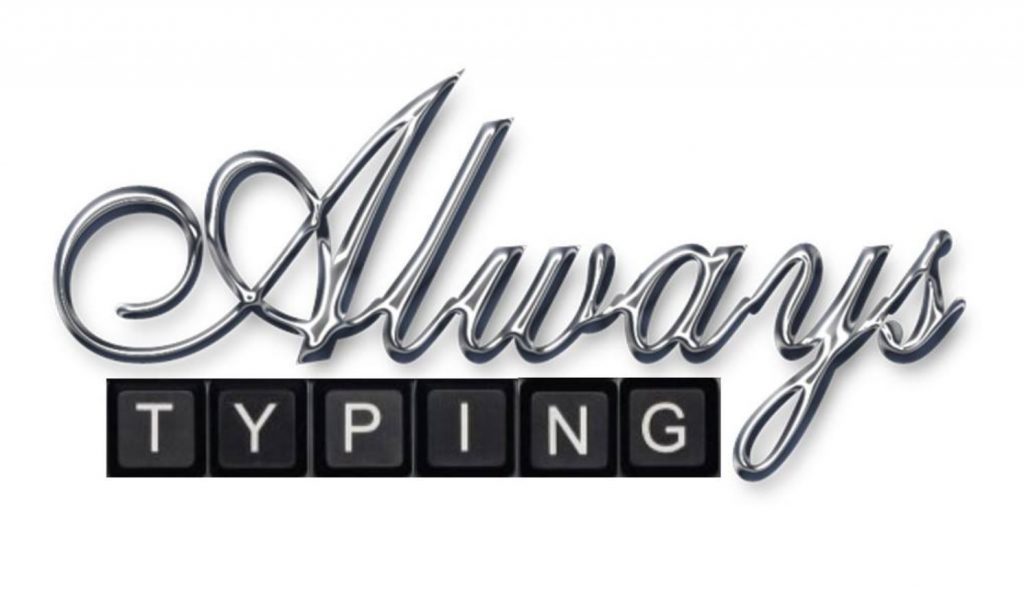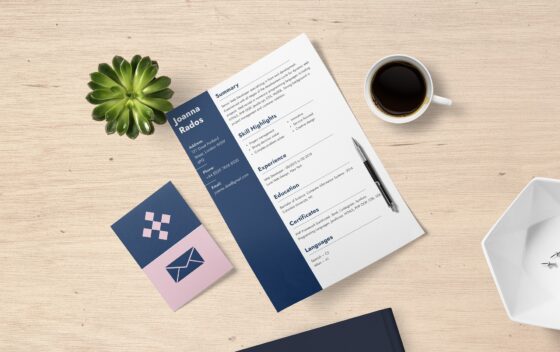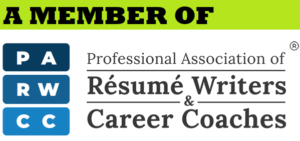Did you know that not asking questions at the end of an interview says a lot about you as a candidate? Most notably, telling the hiring manager that you have no questions for them indicates that you are not interested in the position. There are many good questions to ask at the end of an interview to let the employer know you are interested in the job. It’s also important to remember that an interview isn’t supposed to be a question and answer session. It should be an equal exchange of information. The information you walk away with will be lacking if you don’t ask questions. Stop wondering what questions to ask. Keep reading to build your end-of-interview-question arsenal. Good Questions to Ask at the End of an Interview: It’s always a good idea to avoid salary or compensation questions until the company brings that up. And you should always stray away from awkward or overly personal questions. Below, we’ll outline some of the best end-of-interview questions for you to choose from: #1 What Is the Most Important Quality the Person You Hire Will Have? This question lets you know what the employer finds the most important. Most of the time, you’ve already discussed this during the interview, so you can work it in two different ways. If discussed, say, “Since we discussed X, Y, and Z as important qualities, which of those would say is the number one quality for the new hire to have?” If you haven’t discussed, say, “What is the most important quality the new hire will have for this role?” This also allows them to get more information about the type of person they are looking for. #2 What Do You Consider to Be the Most Important Question You Asked During the Last Hour? People get very nervous during job interviews and sometimes mess up when answering. By asking this question, you not only understand the top qualities the company wants but also give yourself an opportunity to expand on a previously lackluster response. #3 What Are the Biggest Challenges Your Company Is Facing? This is one of the best questions to ask at the end of the interview! First, you find out about potential challenges you’re walking into if you are hired. And second, you get to discuss how your strengths can help them overcome the challenge. It’s a win-win for both you and the employer. #4 What Will Be the Most Challenging Aspect of This Role? This question gives you insight into information that is vital to making a good decision about taking the role. You’ll learn a bit about the leadership style and culture, while also discovering whether you think you’ll fit the position well enough to overcome these challenges. Also, some interviewers may say negative things about existing leaders, team members, or candidates when answering this question. That is a major red flag that will show you the type of culture you’d be joining. #5 Can You Tell Me About the Direct Manager for This Role? Another one of the best questions to ask an employer is about who your manager will be if hired. First, you can go home and research them online to learn more about them. And second, you can get a review from an internal team member about the type of leader you’ll work under. You may also be able to segue this question into an opportunity to meet the person. #6 What Is the Team Like? Fitting in with the team you’ll be joining is kind of a big deal. Asking the interviewer this question allows them to see that you know it is a big deal and want to fit in if hired. This will leave a good impression on the interviewer. Once they have responded, be sure to show excitement about what you learned and explain how you think you’d be a great fit. #7 What Is the Company’s Culture Like? This one is much in alignment with the previous question. A company’s culture can make or break a team. You want to know what type of environment you’ll be walking into. For example, if they say it’s a fast-paced, high-pressure environment, you know that there will be high expectations. You can then decide if that is something you truly want to join. #8 Are There Formal Performance Evaluations? How Is It Measured? Everyone wants to know how they will be evaluated on the job. By asking how performance is measured and how often, you’ll get a good idea about how you can expect to receive future promotions or salary increases. The answer to this question also gives you insight into performance standards in the company. #9 Why Are You Hiring for This Position? Likely, if the company can’t keep someone in the role, you’ll want to know ahead of time. Asking why the position is open will give you the information needed. Some positions are brand new and that’s why they are hiring. Others are because the role is probably too difficult with low pay and they can’t keep a worker. The answer will give you an idea of which it is. #10 Where Do You See the Person You Hire for This Role in 6 Months or 1 Year One of the most common interview questions they’ll ask you is where you see yourself in 5 years. After you answer that questions, use this question to put it back to them. You’ll learn whether the are opportunities for advancement. You can also find out whether they’ll let you perform stretch assignments (i.e., tasks outside of your normal job) to enhance your skills and possibly advance to a new position later. PRO TIP: Don’t forget to send a follow-up after your interview. Click here to learn how! Update Your Resume to Secure Your Next Interview Now you have a list of good questions to ask at the end of an interview. Before you’re ready to jump into interviewing, you need to
6 Most Common Interview Questions and How to Answer Them
The average interview is 45 minutes long. During that time, potential employers may ask you a variety of questions to determine your skill level, drive, and personality. There are a variety of common interview questions that hiring managers ask. In this article, we’ll outline 6 of the most common and offer advice on how to answer them. #1 Tell Me About Yourself This is arguably one of the most popular interview questions asked by potential employers. And what a loaded question it is! How exactly do you answer this? You should consider the following when you create your elevator pitch: For example, your elevator pitch could look like this: “For the last 10 years, I have been in the sales industry with a focus on IT solution selling. Throughout my time in the industry, I have discovered a passion for SaaS products and gained subject matter expertise in these areas. I also serve as a mentor to junior associates to help them improve their selling capabilities. I hope to progress through my carer into a sales leadership role.” #2 Why Are You Leaving Your Current Role? This is often a tricky question and it’s very important you never, under any circumstances, speak negatively about a previous company. It doesn’t matter if they set your house on fire, you do not speak poorly about a previous employer. Interested in learning about other interview mistakes to avoid? Check out our article on this topic! Instead, you can say something like this: “I actually wasn’t looking to advance my career just yet, but once I saw the opportunity (or was contacted by someone), I knew I couldn’t pass it up. This job aligns with my career goals and personal strengths. I hope to learn more about it during this conversation.” #3 What Is Your Desired Compensation? Before going into an interview, you need to research the average salary for your area. You can use this calculator to get an idea of what to expect. It’s important you remain open to negotiations during this discussion. Also remember that compensation isn’t just about dollars and cents. Your answer could be similar to this: “Based on my research, this job role has a salary between $XX and $XX. However, I understand that salary is based on many factors and the monetary number is negotiable. I believe we can come to a mutual agreement for a salary that will reflect my years of experience, education, credentials, and strengths.” Before ending your response, put the question back to them by adding this, “Does the company have a range or set salary schedule for this role?” #4 Why Should We Hire You? This is another of the most commonly asked interview questions. During your answer, you want to highlight how your personal and professional goals align with the company’s mission and vision. It’s also important that you comment on a few of the core job duties and your experience with them. Here is an example: “Based on the job description, I have the unique combination of education, skills, and experience that your company desires. After researching your company, I believe my personal beliefs and your mission are in perfect alignment. My past experience as a (job title you’re applying for) has prepared me well for the challenges I may face in this role. I have extensive experience in (list a few skills from the job description). After discussing the role with you, I am even more interested in the position and hope we can move to the next steps.” If you want to be a little more bold, at the end, you can say, “After discussing the role with you, I am even more interested in the position and look forward to moving on to the next steps in the interview process.” #5 What Are Your Strengths? What Are Your Weaknesses? Two of the most asked interview questions are about your strengths and weaknesses. When discussing your strengths, you want to highlight the skills you can do without issue or assistance every single time you’re asked. For example, if you are in the human resources industry and are exceptionally good at benefits administration, you could talk about that. An example response could be the following: “As an HR generalist, I was first introduced to benefits administration three years ago. While I struggled at first, I quickly adopted the skills needed to masterfully complete (specific job description skills). I am now confident that this is one of my best strengths.” As for weaknesses, you want to approach them a little differently. You want to talk about a weakness that doesn’t directly hurt the job you are applying for. It should also be a skill you are actively working on improving. Avoid trying to use a strength as a weakness (e.g., “I’m a perfectionist”) or faking an answer. For example: “I believe my greatest weakness is handling conflict in the workplace. This is a common issue that arises in the HR department and I am actively working on improving my dispute resolution skills with (a course, class, or book). This is something I work on every day to resolve issues without coming across negatively or aggressively. In the last six months, I’ve been able to resolve conflicts with ease and know I can bring that skill to my position here at ABC Company.” #6 Where Do You See Yourself in 5 Years? This is one of the most typical job interview questions recruiters ask. For some people, this question is very difficult to understand. Many people can’t even see where they’ll be the next day, much less five years from now. It’s best to approach this question by referring to your past. For example, you could say, “Five years ago, I didn’t expect to be sitting here having an interview for this HR Generalist position. I’ve grown much faster in my career than I expected. With that said, I always set personal and professional goals that will propel my career
Were You Terminated? Learn How to Explain Being Fired During a Job Interview
Nearly 1.4 million people have been fired or laid off in 2022. If you are one of these people, you’re probably dreading your next interview. Answering, “why did you leave your last position?” isn’t an easy question after a termination. You’re in the right place. This article will educate you on how to explain being fired without making it a huge deal or the focus of the interview. Termination is a tough situation, but with our tips you can move on to your next role soon! How to Get a Job After Being Fired Job searching after termination is a trying time for most people. Not only do you not know how to address it in interviews, but most of the time you will have low confidence due to the situation as a whole. Getting a Job After Being Fired: Do’s and Don’ts You may be wondering what to avoid doing when discussing being fired. We have a few do’s and don’ts to help you stay on track when discussing the situation. Read more below: Don’t Speak Badly About Your Previous Employer Hiring managers do not want to hear you talk badly about another company. This makes you appear bitter and gives the hiring manager a bad impression about the type of employee you are. So, when discussing the termination, stick to the facts and try to keep emotion or too much detail out of it. Do Keep Your Response Simple and Truthful Without Too Many Details You don’t want to lie to a potential employer. This could backfire big time and in a bad way if you did try to lie about a termination. It’s best to keep it simple and truthful without dwelling on it for too long. For example, let’s say you were terminated because of a common mistake in a regular process. It doesn’t matter if the manager didn’t like you and was looking for a reason to let you go. It also doesn’t matter if everyone else in the company did it that way. Those details are not important and shouldn’t be included. Your answer could go something like this: “I was terminated due to an error in a (type of) process. I have since discovered the correct way to do it and feel strongly that the error will not present an issue ever again. In fact, the new knowledge I have regarding (type of) process will help your team with (skill, skill, skill).” PRO TIP: Always end any response, especially one that begins with a negative, in a way that shows what benefit you’ll bring the new company and its team. Don’t Avoid the Question or Lie When asked why you left your previous company, it’s not a good idea to try and avoid the question or to outright lie. Not only will the hiring manager see you are uncomfortable and likely know something is up, but it’ll mean you lose out on the job for sure when they realize what you are lying about. Be straightforward and honest. It’ll show the company you can own up to mistakes (if that was the reason) or handle a challenging situation with grace. How to Quickly Redirect the Conversation to Your Strengths When explaining the reason for termination, it’s vital you let the interviewer know that you have learned from any mistakes that were made and showcase a few strengths. If you were terminated due to a layoff or company closure, those discussions are much more understandable and likely don’t require a lot of redirection. It’s still important you discuss your strengths throughout the interview. For example, if you were laid off, the answer could be: “I was recently laid off at XYZ. While the situation has been difficult, I am confident in my ability to deliver exceptional customer service and help support your company in growing new business.” If you were fired, here is another way to redirect the conversation: “There was a miscommunication about a process and I messed up. I realize now I should have asked for more help on how to do the process correctly. Now, I’m far better at active listening and have become more attuned to my own failings. Being self-aware can certainly be something I use to fulfill the (skill, skill, skill) you require for the (position title).” Job Search After Termination Doesn’t Have to Be Stressful! Now you know how to explain being fired. We hope this article helped you feel more confident going into your next interview. If you haven’t started interviewing yet, you may want to consider a resume update! With a strong resume, terminations aren’t as difficult to explain. Working with a professional resume writer helps you showcase your strengths and abilities in a way that grabs the reader’s attention and makes them want to know more. Don’t start your job search without an updated resume! Check out our packages and let’s get started today.
Tired of Saying “I Can’t Find a Job?” Discover the Most Common Reasons You’re Struggling
Did you know that 47% of interviewers will pass on candidates who know nothing about the company? Or that 65% of candidates don’t get a job because they don’t make eye contact? There are dozens of other reasons why people can’t seem to stop saying “I can’t find a job.” In this article, we cover the most common issues that pop up and prevent people from getting a first, second, or even third interview. Keep reading to learn more! #1 You Need to Improve Communication Skills Many times, when people interview, they get very overwhelmed or anxious and give long-winded answers to questions that could have been answered more succinctly. This is where practicing effective and clear communication is important. By improving this skill, you make your next interview run more smoothly and make yourself appear more confident. #2 You Aren’t Dressing to Impress While some people would argue it’s outdated to dress up for an interview, just as many people would argue it’s important to do this to make a good first impression. When in doubt, it’s better to wear something professional when interviewing. This shows the interviewer you took the time and effort to look presentable for an important meeting. #3 You Aren’t Researching Before Interviews Once you get an interview scheduled, you must research the company. You can go to the company’s website or social media pages to find out a few facts about when it was created or its mission. A great place to research companies is LinkedIn, it’s also a perfect platform for building your professional network. #4 Your Resume Needs an Update One of the most common reasons people state “I can’t get a job” is because their resume isn’t updated. In today’s world, your document must pass through the applicant tracking system (ATS) before it gets to the decision-makers. This means you have to tailor it to every job you apply for. It also means you need a professionally formatted document that can pass the screenings. Resumes with a lot of tables and integrated designs usually do not make the cut. The format should be clean with white space and clearly defined headings above each section. #5 You Aren’t Applying to Enough Jobs Applying for a new job often seems like a job. It’s a timely, but necessary, process. You must apply to many jobs to get interviews. Choosing two or three and calling it a day on the job search isn’t feasible. You should be applying to 10-15 jobs per week. #6 You Aren’t Preparing Enough During Each Stage Before the first interview, you need to research the company and practice answers to the most common interview questions. You should also think of a few questions to specifically ask the interviewer that relates to the company/culture/job. If you are going to a second interview, it’s important to think of specific examples that showcase your leadership, problem-solving, and customer service skills. Remember to demonstrate both hard and soft skills. If you are making it to the third round, you are so close! You’ll want to really prepare for this one because it often means you’re down to one to three candidates. Research the interviewer, have a game plan about your first few months in the job, and any other scenarios you may have picked up on in previous interviews. #7 You’re Overly Excited or Desperate A lot of people struggle with “I can’t find a job I like” and get overly excited when one does contact them. While it’s okay to be excited, you must contain it and remain professional during the interview(s). Candidates who seem desperate for the role are often overlooked because it’s a turnoff to interviews. Think of it like how you would approach a potential date…a desperate person isn’t as attractive as a confident one, right? #8 You Need to Work on Confidence Expanding on number seven, you may have a confidence issue. It’s easy to let the situation take hold and feel unconfident, but it’s important you don’t convey that during an interview. If you don’t feel confident, fake it until you do. The best way to gain confidence is through preparation and practice. #9 Your References Need a Check No one wants to be in this situation, but if you’ve worked on everything else and you still aren’t getting that call…your references may not be on your side. Take a look at the people you put down for references and make sure they are still solid contacts who will give you a good recommendation. It’s also a good idea to let them know ahead of time that a company may be calling them so they are prepared and know to answer the phone. Tired of Saying “I Can’t Find a Job” to Friends and Family? Resolve #4 Today Now you know a few of the main reasons why most people are constantly stating “I can’t find a job.” Many of these problems are easy fixes with a little practice, help, or dedication. If you are struggling because of number four, we are here to help! Working with a professional resume writing company can help you prepare an ATS-friendly document that wows readers. Check out our packages today and contact us to get started on improving your job search!
Secure More Interviews With a Professional Resume Outline
A professionally written resume boosts your earning potential by 7%. When you think about the fact that most hiring managers spend less than 10 seconds scanning a resume, you realize the importance of having a professional resume. There are ways to make your resume professional without hiring a professional resume writer. In this article, we’ll cover what a professional resume outline is and why you should always use it to develop your career documents. Don’t let your resume be one of the ones that are tossed aside after three seconds. Learn more now: What Is a Professional Resume Outline? A professional resume outline is a skeleton or sections of your resume that must be filled with your unique career history. These sections are vital to passing both ATS and hiring manager scans. Some resumes are shorter and only have five sections, but others have many more. It all depends on your career target, history, and industry. Why Is It Important? First of all, nearly 95% of Fortune 500 companies use some form of an ATS. These automatic scans will reject your document if it doesn’t follow the correct format or have the right information. When you have a professional resume outline and include all relevant information, you’re one step closer to getting your resume to a human being. And secondly, you want your resume to be as professional as possible so it stands up against competitors. That’s why following an outline and including the information we’ll highlight below is a must if you want your resume to be taken seriously. Which Format Should You Use? There are three popular formats we recommend for your resume. The first is the most common and it is the reverse-chronological resume. It highlights your experience starting with your current role and working backward for 10-15 years. However, some high-level managers or those with career gaps may benefit from a hybrid or combination resume. These formats focus more on the skills and accomplishments you have rather than the professional experience. And finally, there is the functional resume. This format is probably the least common and least liked by hiring managers. It is good to use when you are changing careers and need to highlight transferable skills for the new path. We do not recommend using the functional format except in special circumstances. What To Include In the Basic Resume Outline: Now that we’ve explained what the outline is and why it’s important, we’re going to cover what to include in it. The following are the vital elements that every resume must have. We cannot stress enough how important it is to include these sections. Contact Information Summary Skills/Competencies Professional Experience Education and Credentials If you have the space and information to include, you can also have additional sections. These may include: Publications Professional memberships Awards and honors Board membership Volunteer experience Patents Technical proficiencies Speaking engagements Articles submitted to peer reviews or books Conferences attended or invited to It’s vital you remember to keep the resume to two pages. Three pages are okay in some instances, but resume best practices says to stick to two as much as possible. If you have room on the document after you have the basics, you can consider including any of the extras. Resume Outline Examples: Below, we’ll pull information from one of our example resumes so you can see which section contains what information. Keep reading to learn more: Contact Information First Last City, State Zip | (111) 222-3333 | email@email.com You want the contact information to be front and center at the very top of the first page. You should include your first and last name, location, phone number, and email. You can also include a link to a portfolio or LinkedIn profile if those are applicable to the jobs you are targeting. A hiring manager can’t contact you without this first section. Additionally, Applicant Tracking Systems (ATS) could kick your resume out of the system if it doesn’t find contact information. Summary Title that Mirrors Job Description Optimistic and energetic Business Leader with extensive experience managing stores, creating and executing new processes and procedures, building self-sufficient teams, and revamping operational roadmaps with a positive impact on profitability. Champions an environment of equality and inclusion for all staff members by building an atmosphere of acceptance, mutual respect, innovation, and cultural awareness. Consistently achieve business continuity by establishing productive business relationships and resolving critical human capital issues. Bilingual proficiency in English and German. The above is an example summary to showcase on your resume. It should be between 3-5 sentences that describe your strengths and attributes. The summary is placed at the very top of the resume under your name and the heading of the resume. The heading is the title of your current job or the role you are applying for. Skills/Competencies Core Competencies Customer Service | Operational Strategies | Sales | New Hire Training | Team Leadership | Conflict Resolution | Documentation & Reporting | Recruiting Strategies | Interviewing Techniques | Performance Reviews | Resource Planning | Program Management | Business & Regulatory Compliance Your skills list is one of the most important parts of the resume. You want to make sure these align with the keywords in the job description you are applying for. This will help you pass through the ATS and get in front of a recruiter. You’ll place the skills section directly below the summary. These two sections should only take up about one-third of the first page, but no more than half of the page. Your Work History Section Professional Experience Name of Store Store Manager | 2007 to Present Manage and direct daily operations by analyzing market trends, responding to shifting priorities of consumers, and implementing talent retention initiatives through improved employee engagement and training that fostered a strong team morale and improved productivity. Successfully sourced new candidates and scheduled interviews based on successful pre-screen. Coach and mentor employees on administrative procedures, company policies, and performance standards by turning inefficiencies into opportunities for improvement
How to Handle a Part-Time Job on a Resume
As of August 2022, over 25 million people held part-time jobs. When searching for a new job, many people wonder how to include a part-time job on a resume. Some wonder if including it is even necessary. The answer to both of those questions is more complicated than a direct yes or no. This article will answer these questions once and for all! Keep reading to discover more about how to put a part-time job on your resume. Should You Include a Part-Time Job on a Resume? In short, it depends. If it helps you to meet your job goal, then it should definitely be included. If it is an on-the-side job that doesn’t offer much value to your career history, then you may want to leave it off. Answering the following questions will help you make the best decision: Does It Align With Your Job Goal? If the part-time role showcases the skills and has solid accomplishments to help you get your next role, you have to include it. You do not have to say that it is a part-time role when developing it. Just proceed as you do with the other roles in the professional experience section. Does It Add Value? Adding a position is also a must if it adds value to your job target. For example, let’s say you are trying to get into an entry-level sales role. And your experience is working at a camp for children during summer breaks in college. You would want to include this because it can highlight a few key skills that would help in sales, including: Many times, adding a part-time role can show valuable skills that transfer across many different types of positions. So, if there is room on the resume and you can show the role professionally, adding it is probably a good idea. Will It Create a Gap to Remove it? Another important consideration is if removing the job will create a gap in your resume. If removing the part-time job creates a gap in your work history that exceeds a few months, it’s a bad idea to remove it. Gaps on the resume are a major concern and red flag for a lot of hiring managers, so it’s better to have a little something rather than nothing. In the following section, we’ll describe what sections you must have when writing a resume with part-time roles. Part-Time Resume Template The resume template for someone with part-time roles is exactly like the one for professionals with full-time roles. The following outline will ensure your resume has all of the vital elements: Contact Information At the very top of the resume, you need to include your contact information. This will include: You must include this information so recruiters can contact you. And it needs to be easily noticeable so they know exactly who to get in touch with and how to do so. Summary Directly following your contact information is a short summary highlighting your strengths and attributes. It should only be about 3-5 lines and should focus on the abilities you bring to an organization. You’ll want to customize this section and the next based on the job description you are submitting a resume. Areas of Expertise The areas of expertise section should be 9-15 skills that are directly related to the job applying for. Many formats have these in bulleted form across 2-3 columns. You want to make sure these skills align with the language from the job description to pass through the ATS. Professional Experience The professional experience should include the following about all roles (full- and part-time): Some jobs will have more achievements than others and that is okay. You want to focus on including the most relevant and eye-catching information in this section so hiring managers want to connect with you. Education and Credentials At the end of the resume, you’ll include your education, training, and other related credentials. This should be a short section that encompasses your professional training and education. What To Do If You Have Held Several Part-Time Jobs Sometimes, people have several part-time jobs that are very similar in nature. These roles even overlap on occasion. If you have job roles that have the same title and same duties, it is okay to combine them. This will make your resume have fewer jobs listed so you don’t look like a job hopper. It also cuts down on repetitiveness which is a big deal with most resumes. The hiring manager does not need to read the same information over and over again. Combining similar roles makes sure you don’t have this issue. Contact Us Today to Get a Resume Update! Now you understand how to handle a part-time job on a resume. We hope this article helped you to develop your career documents! However, if you are still unsure of how to proceed or need assistance, check out our packages today to learn more about our professional resume services.








